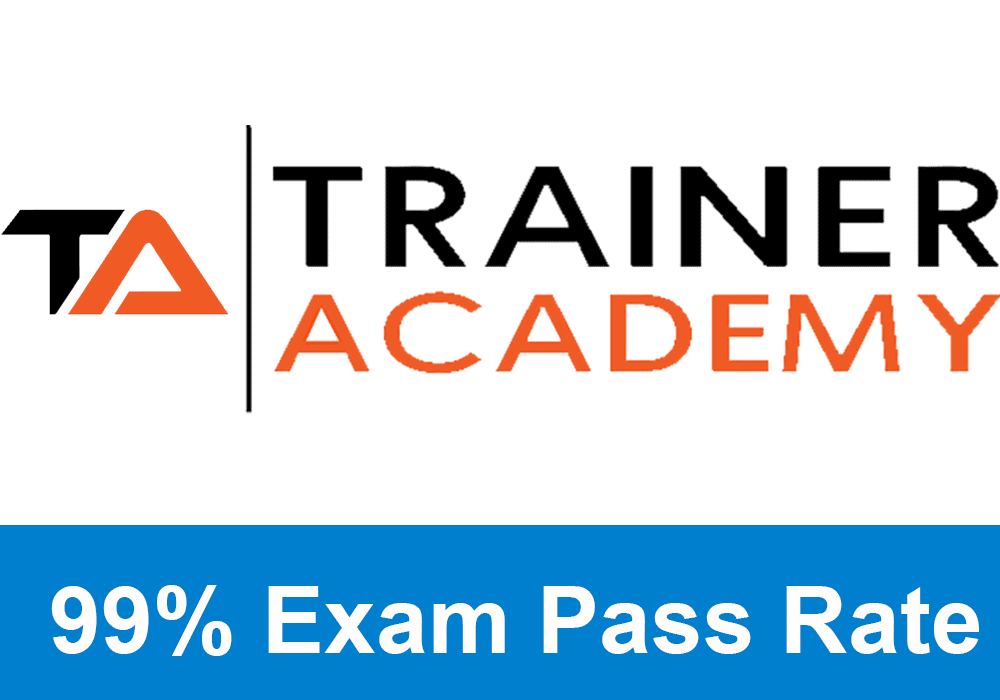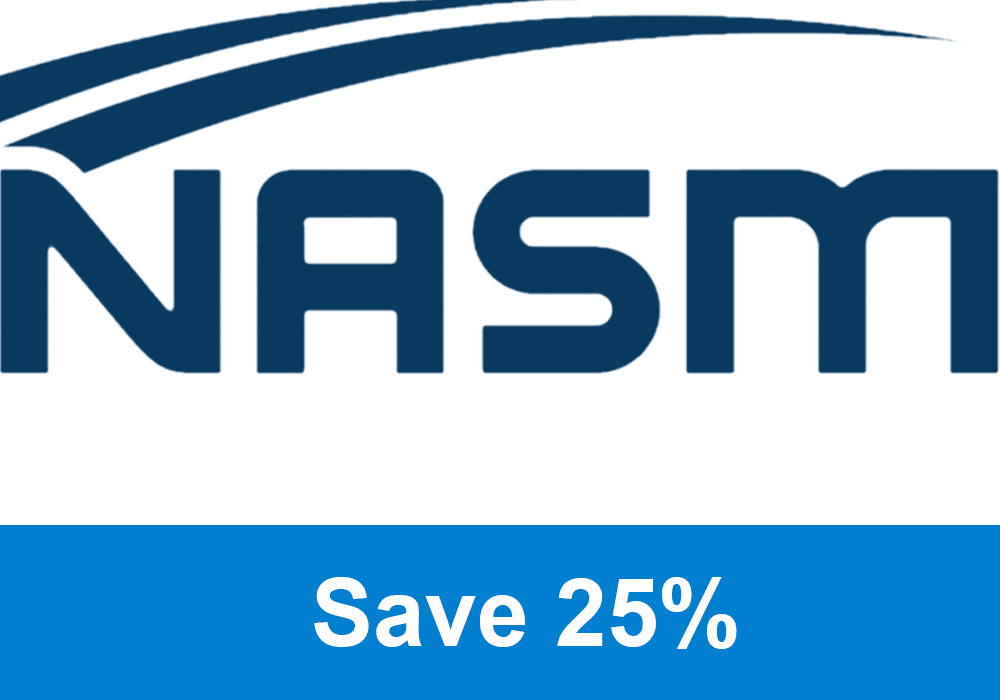
If you have not yet signed up for the NASM CNC certification, receive a big discount here.
Get your copy of the NASM CNC exam cheat sheet. It helps immensely for studying for the exam.
My PTP students report cutting their NASM CNC study time and effort in half with Trainer Academy.
Enjoy the insurance of the Exam Pass Guarantee and Retake Fee Guarantee, plus take advantage of my current discount code PTPJULY for 50% off until July 21st, 2025.
Try it out for free here to see if it’s right for you, or read my detailed review for further insights.
Chapter Goals:
- Describe the reasons for using evidence-based practice.
- Know the differences in methodology and basic science principles.
- Be able to explain the scientific method.
- Define the scientific process.
- Compare all of the research methods.
- Determine if a source is reliable.
- Analyze research findings and formulate your position in nutrition science.
Science and Evidence-Based Practice
Science is the body of knowledge and the process we use to obtain knowledge. Science is simply a method for getting objective truths.
We use the process known as the scientific method. This is the method that begins with a formulation of a hypothesis. The hypothesis is a possible explanation for some problem or set of observed things. The scientist then designs some experiments to test that formulated hypothesis. If the experiments fail, then this would not be used to explain the hypothesis and the hypothesis would need to be changed and then retested. If the experiment passes and back the hypothesis, then it would be used as a working model for that idea.
Evidence based practice means that something uses this three-pronged approach to work with their clients that consists of these three things:
- The weight of the evidence from scientific research.
- Observations made in the field.
- The needs and preferences of individual clients.
Hypothesis Testing
Exclusive PTP CPT Offers |
||
|---|---|---|
Most Popular Cert | Best Online NCCA Cert | Best Study Materials |
Gold Standard Cert | A Good Option | Best CPT for you?  |
A large part of the process of science is testing the hypothesis. Scientific studies are the main way in which we do this.
Instead of scientists proving what is true, they actually narrow down what may be true.
Predictions result from the hypothesis and these will be proved true or not true through testing. This is through experiments or just gathering some data.
The Accumulation of Evidence
Here, the phrase of science being “most likely true” resonates. This is because all testing is an accumulation of evidence. The failures and the successful experiments. The more evidence we have available, the more likely something will be true.
A theory is a hypothesis or some set of hypotheses in which much evidence has been brought together to make something extremely probable.
The Hierarchy of Evidence
In order from the best evidence to the least reliable:
- Systematic reviews and meta-analyses of RCTs.
- RCTs
- Observations
- Peer reviewed editorials and other opinions from experts
- Non peer reviewed media like anecdotes and tradition
- Non-peer-reviewed media
- This includes media consisting of news reports, magazines, documentaries, and television shows. There exist many biases, inaccuracies, and bad information all throughout.
Anecdote = an account of someone’s experience
Peer-Reviewed Editorials and Expert Opinions
This is an opinion piece found in a scientific journal. It may have gone through some form of peer review and is based on scientific evidence, but it is still only an opinion piece.
Observational Research
Exclusive PTP CPT Offers |
||
|---|---|---|
Most Popular Cert | Best Online NCCA Cert | Best Study Materials |
Gold Standard Cert | A Good Option | Best CPT for you?  |
This is research where the researcher observes ongoing behaviors to determine if correlations exist. Correlations found will not equal causation. So here we find correlation and not cause and effect.
Randomized Control Trials
This is a form of scientific trial or study that has participants randomly assigned to different groups. One group is the group being tested, while the other is the group for control. This is random to prevent biases from occurring.
We make use of placebos here. This is when someone is given something in the control group that is thought to have an effect but doesn’t. It works to prevent bias.
Systematic Reviews and Meta-analyses of RCTs
Systematic reviews are reviews in which scientists have gotten together and gathered all of the research on one topic and evaluated it based upon some predefined rules and criteria.
Meta-analyses are statistical analyses of a group of studies for assessing the overall weights of evidence presented.
Strengths and Limitations of Major Types of Research
Strengths and Limitations of the Observational Designs
These studies allow for the examination of large populations over long time periods. They work to look at the possible associations that happen over these long periods of time. They also allow for hypotheses to be generated that can be looked at within RCTs.
They still cannot look at the cause and effect of what they observe. Scientists can try to control a lot of confounders in statistics, but they cannot control them all when looking back in time.
Strengths and Limitations of Interventional Designs
The main strength of interventional designs is they allow the demonstration of causes and effects. Scientists can control most variables they cannot control in observational research. It is also possible to explore mechanistic explanations for observed effects.
This degree of control also plays a role as a limitation. This is, the study might not represent the conditions within the real world. So, we would then limit the external validity.
One more major imitation is the examination of limited variables at one time.
They may also be limited by having fewer subjects or even done with very little time.
Evaluating Sources of Information
Peer-reviewed Scientific Journals
These journals are compiled research papers, editorials, and other academic writing types. These will go through the process of peer review. This is the critical evaluation of the study by other scientists.
Types of peer-reviewed journal articles:
- Narrative reviews
- Individual studies
- Systematic reviews and meta-analyses
- Position stands and scientific consensus statements
- High quality Non-peer Reviewed Sources of Information
- These can be great sources, but they do have a higher risk of bias and error.
These resources include:
- Academic textbooks that were recently published
- Pubic health websites from universities
- Podcast interviews with primary researchers
- International health websites
- Questionable or Poor non-peer reviewed sources of information
- Caution is always warranted when getting info from these.
- These include:
- Popular media
- Testimonials and anecdotes
- Most blogs
Scientific Consensus: How the Scientific Community Changes
Sometimes the studies can contradict one another, but this is a natural piece of the scientific process. As time progresses, newer evidence or the use of new tools will help this natural process and the scientific theories will be backed by more evidence.
Science: Shades of Grey, Not Black and White
Conclusions made in science are tentative and based upon differing degrees of certainty that we base on the weight of the evidence presented. So, science rarely ever uses an answer that is black and white. The more evidence we have for something, the darker grey I will become. A theory isn’t even a pure statement either, just a darker form of grey.
The topic of nutrition is notably a very complex topic when it comes to evidence and the weight of proof.

 Have a question?
Have a question? 



Tyler Read
PTPioneer Editorial Integrity
All content published on PTPioneer is checked and reviewed extensively by our staff of experienced personal trainers, nutrition coaches, and other Fitness Experts. This is to make sure that the content you are reading is fact-checked for accuracy, contains up-to-date information, and is relevant. We only add trustworthy citations that you can find at the bottom of each article. You can read more about our editorial integrity here.